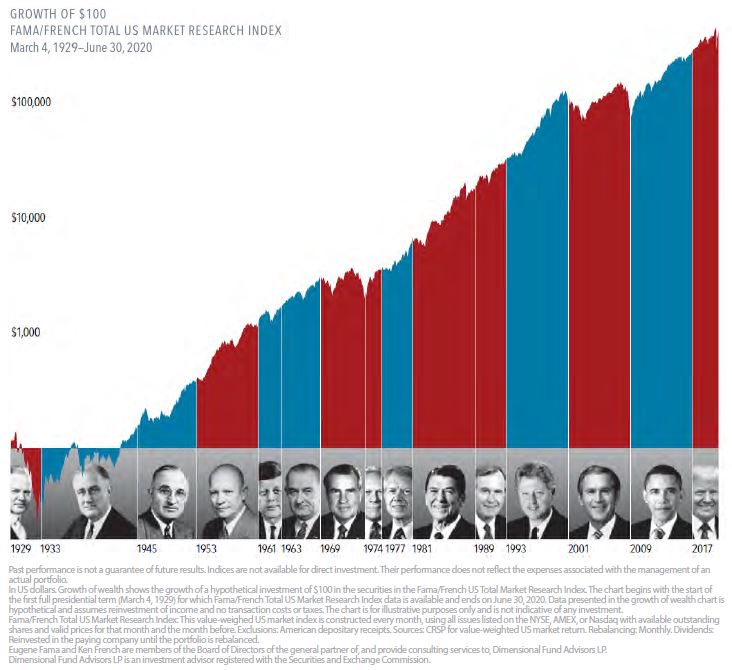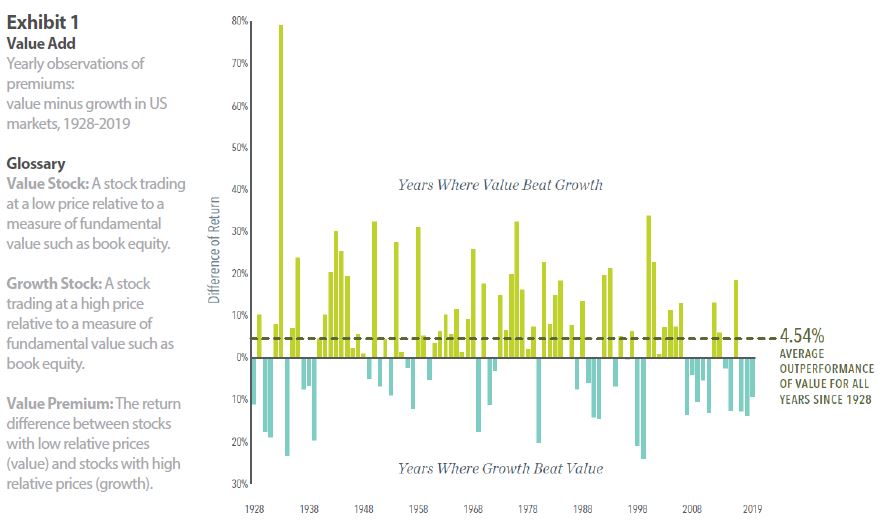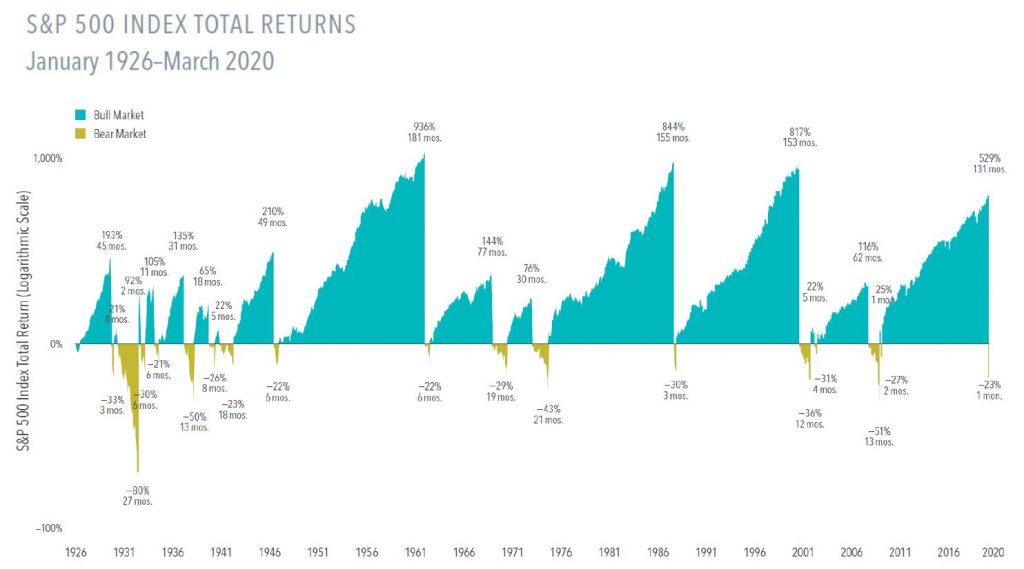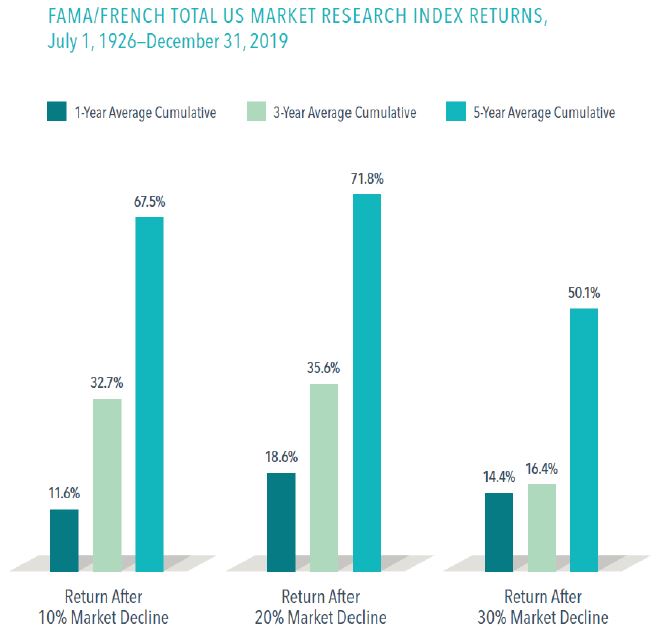Our largest camp yet, 80 kids attended! Campers raised $955 for the Norfolk Library Foundation!
Check out the article written by The Norfolk Daily News!
https://norfolkdailynews.com/news/lemonade-camp-raises-nearly-1-000-for-local-nonprofit/article_214e46f4-172c-11ed-8278-33069af128c6.html
Author: Leann
We are joining forces with Integrity Marketing Group!
DALLAS – SEPTEMBER 28, 2021 – Integrity Marketing Group, LLC (“Integrity”), the nation’s largest independent distributor of life and health insurance products, today announced it has acquired WealthFirm, a wealth management and retirement planning firm headquartered in Nebraska. As part of the acquisition, Nancy Brozek and Jared Faltys, Co-CEOs of WealthFirm, will become Managing Partners in Integrity. Financial terms of the transaction were not disclosed.
WealthFirm began as a CPA firm in 1948 serving clients in the Midwest. Building on decades of relationships and trust, many clients began turning to their WealthFirm advisors for advice on financial decisions such as wealth management, estate planning and retirement options. In 1997, WealthFirm created Wealth Management LLC, a registered investment advisor (“RIA”), to give their advisors the systems and support to provide clients complete financial well-being solutions. The company then added Retirement Plan Consultants LLC, an advisory resource to help clients create a financially secure retirement in 2008. Today, WealthFirm serves clients through advisors across the United States with almost $3.5 billion in assets under management and advisement across the two entities.
“As Americans age, we believe two of their greatest concerns are their health and their wealth,” explained Bryan W. Adams, Co-Founder and CEO of Integrity Marketing Group. “WealthFirm has earned an incredible reputation for being a service-oriented business. By coming alongside them as a partner, Integrity will give them more resources, technology and tools to better serve their advisors and help more Americans. Integrity is committed to innovating for our clients. By adding the wealth management and retirement solution offerings of WealthFirm, we are fulfilling that mission better than ever.”
“Americans look to their trusted advisors to help create solutions when making some of life’s biggest decisions,” said Jared Faltys, Co-CEO of WealthFirm. “By combining our expertise and relationships with Integrity’s end-to-end platform, we can help more people feel secure about the future of their finances and healthcare. At WealthFirm, we’ve always tried to stay ahead of the industry and we immediately recognized that Integrity brings that same commitment to insurance. We’ve created a synergistic partnership that will help countless more Americans today — and benefit them for generations to come.”
Adding WealthFirm’s capabilities to Integrity’s fast-growing partner network illustrates Integrity’s innovation and leadership across every aspect of insurance. Integrity’s prestigious network of legends and trailblazers includes companies such as CSG Actuarial, ThomasARTS, Deft Research, Access Capital, Brokers International and Insurance Administrative Solutions’ third-party administrator, as well as leading call centers Connexion Point, SeniorCare Benefits and Unified Health.
“The best partnerships benefit everyone, while building something stronger together,” said Nancy Brozek, Co-CEO of WealthFirm. “By uniting our companies’ strengths, WealthFirm offers Integrity agents the opportunity to dramatically increase their offerings beyond insurance. Our advisors benefit from Integrity’s world-class marketing resources and innovative technology available only to partners. Together, we’re poised for enormous growth and we’re excited to open this new direction together.”
WealthFirm will enhance its existing processes by utilizing Integrity’s comprehensive technology platform, with resources such as product development, data and analytics, and a leading advertising and marketing firm. The partnership also offers WealthFirm the opportunity to centralize business functions through Integrity’s shared services, including IT, human resources, legal, compliance, accounting as well as technology and innovation.
In addition, WealthFirm employees now gain meaningful company ownership through Integrity’s Employee Ownership Plan.
“At Integrity, we’re all about relationships,” shared Steve Young, Board Chairman of Integrity. “This partnership allows us to provide better support to WealthFirm’s advisors, while also helping Integrity agents to strengthen the product offerings they can provide clients. Additionally, this partnership will greatly benefit WealthFirm employees. Giving employees meaningful ownership in Integrity through the Employee Ownership Plan shows Integrity’s investment in their strongest resource — their people.”
About Integrity Marketing Group
Integrity Marketing Group, headquartered in Dallas, Texas, is the leading independent distributor of life and health insurance products focused on meeting Americans wherever they are — in person, over the phone and online. Integrity is innovating insurance by developing cutting-edge technology designed to simplify and streamline the healthcare experience for everyone. In addition, Integrity develops exclusive products with insurance carrier partners and markets these products through its distribution network that includes other large insurance agencies throughout the country. Integrity’s almost 5,500 employees work with over 420,000 independent agents who service more than nine million clients annually. In 2021, Integrity expects to help insurance carriers place over $7 billion in new sales.
About WealthFirm
WealthFirm is a family of financial experts headquartered in Norfolk, Nebraska. WealthFirm is the combination of Wealth Management LLC (“WM”) and Retirement Plan Consultants (“RPC”). Each brand of the family is dedicated to improving efficiency, simplicity and effectiveness of financial solutions for businesses, individuals and their families. WM partners with professionals nationwide, empowering them to offer financial guidance to their clients. They believe in low cost, full fee disclosure and maintaining global diversification. WM operates as a partner, assisting professionals to become advisors with one-on-one coaching and by assisting with the back-office and compliance issues so they can remain focused on their relationship with their clients. RPC focuses on simplifying the retirement plan experience by offering customized, people-focused plan solutions. They provide back-office services, including access to custodians, reporting and analytics, trade support, asset allocation and rebalancing. RPC currently serves over 1,800 plans and 17,500 participants. The WealthFirm family is devoted to treating everyone they work with like family. For more information, visit www.wealthfirm.info.
Fall 2021 Newsletter
IS INFLATION HAUNTING YOUR FINANCIAL DREAMS? WHAT WE KNOW

Has the specter of inflation got you spooked? Recent headlines are filled with sightings. Let’s take a closer look at what to make of all the commentary, and what you can do about it as an investor. First and foremost, we caution against succumbing to fear or panic in the face of inflation. As usual, careful planning remains your best guide.
What Is Inflation?
Inflation is the rate at which a currency loses its purchasing power as prices increase over time. So, say a cup of coffee cost $1.00 twenty years ago. If the average annual inflation rate had been 2% between then and now, that same pour would now cost you $1.49. Various goods, services, and sectors often experience different rates of inflation at different times, but general inflation is usually calculated based on the Consumer Price Index (CPI), or a similar broad pricing index.
Recent headlines have been reporting a noticeable uptick in inflation. Superlatives like “best” and “worst” grab the most attention, so outlets have been abuzz with reports of how a 5% May consumer pricing surge was “the biggest 12-month inflation spike since 2008.”
Putting Inflation in Proper Context
Before you read too much into these recently rising numbers, it’s worth remembering their context. We’re comparing May 2021 to May 2020, when we were still deep into what The Wall Street Journal called a “screwy” pandemic economy. The WSJ explained, “If a company takes a hit in one year and then gets back to normal the next, it can look like its profits are soaring when in fact they are just getting back on track.”
Zooming out even further, the Federal Reserve’s 10 Year Break-Even Inflation Rate is one common estimate of the market’s expected average annual inflation rate for the next 10 years. As of mid-June, that rate stood at 2.3%. That’s up from the lower 1.2% rate expectation from mid-June 2020, but it’s still not eye-popping.
Which leads to another important point: Not all inflation is bad. In fact, a bit of inflation goes hand in hand with economic growth and reasonable interest rates for lenders and borrowers alike. A 2% annual inflation rate is typically considered a desirable norm for greasing the wheels of commerce, without destroying the working relationship between currencies and costs.

What if Inflation Runs Amok?
And yet, while inflation has its purposes, it’s concerning if it goes on a rampage. When it does, uncertainty has spiked as well, wreaking havoc on commerce, the economy, job markets, real estate, and financial markets. (Deflation—the opposite of inflation—can also upset the economy if prices drop too precipitously.)
Investors who were around in the 1970s may remember the last time the U.S. experienced red-hot inflation, and what it felt like when it spiked to a feverish 14.8% in 1980.
The New York Times described it as an era when “prices of real assets like houses, gold and oil soared. Average mortgage rates exceeded 17 percent, and interest rates on bank certificates of deposit approached 12 percent. It was hard to know whether a 5 percent pay raise was cause for celebration or despair.” While 12% CD rates may sound great, when interest and inflation rates are comparable, the real returns from even high-interest CDs essentially become a wash.
After the 1980 high-water mark, the Volcker-era Federal Reserve tamped inflation back down. So younger investors have heard of, but never experienced such steep inflation for such an extended time. Despite occasional alarm bells, inflation has mostly continued to hit the snooze button for decades. At least so far.
Next Up: What Can You Do About It?
What if inflation does get out of hand, and stays that way for a while? Depending on who you heed, the possibility ranges from unexpected, to possible, to a near certainty. As usual, prudent planning is preferred over rash reaction.
Copyright © 2021, Wendy J. Cook Communications, LLC
IS INFLATION HAUNTING YOUR FINANCIAL DREAMS? WHAT WE CAN DO ABOUT IT
As many of us realize, there has been a recent uptick in inflation. For investors, it’s important to take a step back and look at the big picture before acting on breaking news. But what if inflation does get out of hand, and stays that way for a while?
The Federal Reserve has been suggesting rising rates should wane. We hope they’re right. But we also know the future remains uncharted. Nearly any outcome is possible, and none is inevitable. This means diversified investing remains our preferred strategy for being prepared for whatever the future holds.
Explaining Inflation Doesn’t Predict It
If higher inflation does materialize, will it arrive sooner or later? Will it be moderate or severe? Brief or prolonged? Forecasts vary widely, because we often forget the academic evidence that informs us: Even excellent explanatory models rarely serve as effective predictive models.
For example, scientists can readily explain why earthquakes occur, but our ability to forecast times, locations and severities remains shaky at best. The same can be said for inflation. We can explain its intricacies, but accuratepredictions remain as elusive as ever. There are simply too many variables: COVID-19, climate change, political action, the Federal Reserve, other central banks, consumer banks/lenders, consumers/borrowers, employers/producers, employees, investors (“the market”), sectors (such as real estate, commodities, and gold), the U.S. dollar, global currency, cryptocurrency, financial economists, the media, the world, time … and YOU.
Each of these could throw off any predictions about the time, degree, and extent of future inflation. Besides, as an investor, you really only have control over the last two: You, and your time in the market. What will you do with your time?
Because We Don’t Know, We Diversify
It stands to reason: Some investments seem to shine when inflation is on the rise. Others deliver their best results at other times. Because we never know exactly when inflation might rise or fall, we believe an investor’s best course is to diversify into and across various investments that tend to respond differently under different economic conditions.
For example, until earlier this year, value stocks had been underperforming growth stocks for quite a while. You may have been tempted to give up on them during their decade-plus lull (during which inflation remained relatively low). And yet, when inflation is high or rising, value stocks have tended to outperform growth, as has been the case year-to-date.
In short, if you’ve not yet done so, it’s time to define your financial goals, and build your personalized, globally diversified portfolio to complement them. If you’ve already completed these steps, you should be positioned as best you can to manage higher inflation over time, which means your best next step is most likely to stay put. This brings us to our next point …

Stocks vs. Inflation: It’s a Knock-Out
Provided time is on your side, the stock market is your greatest ally against inflation.
Over time, global stock market returns have dramatically outpaced inflation. For example, as reported by Dimensional Fund Advisors, $1 invested in the S&P 500 Index from 1926–2017 would have grown to $533 worth of purchasing power by the end of 2017, after adjusting for inflation. Had that same dollar been held in “safe” one-month Treasury bills over the same period, it would have grown to an inflation-adjusted $1.51.
That T-bill growth is not nothing, and welcome relief during bear markets. That’s one reason we advocate for maintaining an appropriate mix between wealth-accumulating and wealth-preserving investments. But what’s “appropriate”? It depends on your personal financial goals. The point is, as long as you have enough time to let your stock allocations ride through the downturns, you can expect them to remain well ahead of inflation simply by being in the market.
It’s important to add, no fancy market-timing moves are required or desired when participating in the stock market. In fact, moving holdings in and out at seemingly opportune times is more likely to detract from the vital, inflation-busting role stocks play in your portfolio. In the words of Nobel Laureate Eugene Fama: “The nature of the stock market is you get a lot of the return in very short periods of time. So, you basically don’t want to be out for short periods of time, where you may actually be missing a good part of the return.”
What If You’re Retired?
So far, so good. But not all your wealth is for spending in the far-off future. What if you’re depending on your portfolio to provide a reliable income stream here and now? If you’re retired, (or you have other upcoming spending needs such as college costs), eventual expected returns offer little comfort when current inflation is eating into today’s spending needs.
Again, you can’t control inflation, but you can manage your own best interests in the face of it.
Engage in Retirement Planning: Along with a globally diversified investment portfolio, you’ll want a solid strategy for investing for, and spending in retirement. For example:
- Asset Location: Among your taxable and tax-favored accounts, where will you locate your stocks, bonds, and other assets for tax-efficiently accumulating and spending your wealth?
- Spending: How much can you safely withdraw from your investment portfolio to supplement your other income sources (such as Social Security)?
- Withdrawal Strategies: Which accounts will you tap first, and then next?
Revisit Your Retirement Planning: Especially when inflation is on the rise, it’s worth revisiting your existing investment and withdrawal strategies. What are the odds your current portfolio won’t deliver as hoped for? We typically use odds-based “Monte Carlo” simulations to ask this critical question, and guide any sensible adjustments the answers may warrant.
Don’t Panic: What if inflation is taking too big a bite? A common misstep is to abandon your carefully structured investments in pursuit of short-cuts. For example, it may be tempting to unload high-quality bonds and pile into gold, dividend stocks, or other ways to seek spendable income. Unfortunately, we believe such substitutes detract from effective retirement planning. The goal is to optimize expected returns and manage unnecessary risks in pursuit of a dependable outcome. As such, we suggest avoiding dubious detours along the way.
Have a “Plan B”: What can you do instead? In “Your Complete Guide to a Successful and Secure Retirement,” authors Larry Swedroe and Kevin Grogan describe how to prepare an upfront “Plan B.” If a worst-case scenario is realized, you’re then better positioned to make any difficult decisions required to recover your footing. The authors explain:
“Plan B should list the actions to be taken if financial assets drop below a predetermined level. Those actions might include remaining in, or returning to, the workforce, reducing current spending, reducing the financial goal, and selling a home and/or moving to a location with a lower cost of living.”
These sorts of belt-tightening choices are never fun. But you should prefer them over chasing unsubstantiated sources of return that could dig your risk hole even deeper.
How Can We Help?
While anyone can embrace the strategies we just described, implementing them can be easier said than done. Plus, there are more steps you can take to defend against inflation, near and far. Examples include engaging in additional tax-planning, annuitizing a portion of your wealth, tapping lines of credit like a second mortgage, optimizing Social Security benefits, and more.
We hope you’ll contact us today to discuss these and other retirement planning actions worth exploring. After all, making the most of your possibilities is always a smart move, whether or not inflation is here to stay.
Copyright © 2021, Wendy J. Cook Communications, LLC
WHAT A DIFFERENCE A YEAR MAKES

Places are starting to “open up”, again. You can now go to a restaurant, the movies, and actually go on a vacation-if you so choose. Churches are back to holding services, and we were able to observe the 4th of July Independence Day holiday in a more traditional manner. Much of this is due to vaccinations that have been developed and made available to us which have drastically curbed the spread of the Coronavirus. We are still not completely out of the woods, but the Coronavirus situation is much improved from one year ago. Certain precautions may still be needed like keeping your distance and wearing a mask if you might be in a crowd with some unvaccinated people. A year ago we were having to adjust to being isolated from other people, and now after isolation we are needing to adjust to being around people, again. It is hard to know whether we will ever be back to exactly the way it was before the Coronavirus pandemic, or if some of the changes that have taken place will be permanent. Only time will tell.
At the outset of the Pandemic, the financial markets plummeted. There were many naysayers back then, but the markets have come back and set new record “highs”. No one can predict with any consistent accuracy what the markets will do. That is why it is good to be diversified and stick with your plan. Don’t let what you hear and see in the news influence your investment decisions.
Enjoy the rest of summer and if you are complaining about the heat right now, remember that fall is just around the corner.
Investments provided through Wealth Management LLC, a Nebraska LLC, Registered Investment Advisor.
This material is derived from sources believed to be reliable, but its accuracy and the opinions based thereon are not assured.
The articles and opinions in this publication are for general information only and are not intended to serve as specific financial, accounting or tax advice.
Summer 2021 Newsletter
PROTECTING WHAT’S YOURS (WHILE YOU’RE ALIVE)

Whether due to disability, dementia, or simply enjoying an exotic vacation, there are many ways you can end up unavailable to make critical financial or health care choices for yourself or your loved ones. If you’ve not documented your desires in advance, it can add extra stress for everyone, plus the outcomes may not be what anyone had in mind!
One source of confusion over when and how to protect what’s yours is understanding which legal logistics apply during your lifetime, and which don’t come into play until after you pass.
Today, we’ll cover a couple of tools for protecting your interests while you are alive:
- A financial power of attorney
- A healthcare advance directive
I. A Financial Power of Attorney
The Basics. A financial power of attorney (POA) is a legal document authorizing someone (your “agent”) to make financial decisions on your behalf. No matter how much authority you grant an agent, they still owe you a fiduciary level of care, which means any decisions they make for you must be based on what they believe to be in your best financial interests.
When It Applies. A POA applies while you are alive, but unavailable to act for yourself. You can structure it to:
- Begin immediately or upon a triggering event (such as a debilitating accident or illness)
- Remain in force during a finite time period or be ongoing
- Apply to all your financial matters, or only to specific transactions
Common Scenarios. A financial POA can be helpful to address:
- Capacity: If you become incapacitated due to illness, injury or dementia.
- Availability: If you’re unable to be present for a financial transaction, such as if you’re traveling abroad or you’re otherwise preoccupied.
- Convenience: If you’d simply like to make it convenient for someone else to be able to make financial decisions for you – such as your spouse or a trusted sibling (in general), your parents (if you’re heading off to college), or your adult children (if you’re aging).
Additional Tips.
- Again, anyone to whom you grant a POA is only your legal agent while you are alive; their authority ends the moment you pass away. Your estate’s trustees should take it from there.
- Your agent(s) should have access to the documents that describe the POA you’ve granted them. If they can’t prove what their role is, they may not be able to act on it when needed.
- Some banks and account custodians have their own POA forms they would prefer you use; also, they may be wary of POA paperwork that is several years old. Check with the financial institutions you frequent about their policies, and consider annually reestablishing any durable POAs, to ensure they remain relevant.
- You cannot grant a POA if you are deemed to be of unsound mind. This makes sense, since you may inadvertently name a “bad” player … or others may be able to contest the POA you’ve established. Don’t wait until it’s too late.

II. A Healthcare Advance Directive
The Basics. Your healthcare advance directive can offer two types of protection:
- Your living will provides your life-sustaining and end-of-life medical care instructions, and related healthcare preferences, in case a time comes when you cannot state them for yourself.
- Your healthcare directive can also name healthcare representative(s), or agent(s) and grant them healthcare power of attorney. If you cannot make your own healthcare decisions, your agent can decide on your behalf, guided by your living will. Medical professionals can also more freely discuss your condition with your agent, without violating HIPAA privacy rules.
When It Applies. Your healthcare advance directive only comes into play if you are alive, but unable to direct your own medical care.
Common Scenarios. Accidents and illnesses can rob you of your mental capacity – temporarily or permanently. If you do not have an advance directive in place, healthcare professionals and/or key family members may have to make medical decisions for you, without knowing what you would have preferred. Also, the individual(s) you would most want to have making decisions on your behalf may not be able to do so if you haven’t named them as your representative(s) in your advance directive. This can be stressful if not heartbreaking for everyone involved.
Additional Tips.
- Not only should almost everyone have an advance directive, it should be easy to get ahold of it when needed. Distribute copies to your primary physician and any of your other healthcare providers to keep on file. Give it to key family members.
- IMPORTANT: Do you have children who recently turned 18? As soon as your child is an adult, healthcare providers may not be able to even discuss your child’s case with you unless you have a healthcare power of attorney. Also, if your child is attending school in another state, it’s worth establishing a healthcare power of attorney in their state and yours.
How Can We Help?
We hope our handy summary has helped clarify the role these critical protections can play in safeguarding what’s yours during what we hope will be a long and prosperous lifetime. That said, professional legal counsel is usually warranted as you sort through the details. Let us know if we can help you sort through the logistics involved. That’s what we’re here for!
Copyright © 2019, Wendy J. Cook Communications, LLC
PROTECTING WHAT’S YOURS (AFTER YOU PASS): THE IMPORTANCE OF ESTATE PLANNING

Fact: When you pass, you will leave behind an estate, and somebody will need to settle it. Your estate may be worth a little or a lot, but there’s no escaping death and taxes.
So why do so many families put off their essential estate planning until push comes to shove?
Estate Planning Is an Act of Love
Since 2015, Caring.com has been conducting a periodic survey of Americans’ estate planning habits. Its most recent results suggest the pandemic has spurred an uptick in estate planning, especially among younger adults. That’s good news. But still, an enormous divide remains:
Some 60% of those surveyed agreed it’s important to have a will.
But, as of December 2020, only about a third of them actually had one.
Among those without a will, the top reason cited across multiple years remained the same:
“I haven’t gotten around to it.”
This isn’t surprising, given the logistical and emotional stumbling blocks involved. Plus, most families are plenty busy with interests that seem more immediate … right up until they’re not.
The Upsides of Estate Planning
In short, if you’ve been procrastinating on your estate planning, you’re not alone. But regardless of your age or net worth, let’s correct that oversight today, because …
By reducing their stress load during an already stressful time,
a well-structured estate plan is the greatest gift you can bequeath to your loved ones.
According to a 2018 EstateExec survey, it typically takes just under 700 hours to settle an estate valued between $1–$5 million. Every painful task and each extra hour you can take care of in advance will be one more way you can give back to the loved ones you leave behind, granting them the space they’ll need to grieve and process the emotional toll of their loss.
Estate planning also brings important practical advantages to nearly every family:
Clarity: Your actual wishes are far more likely to be realized if you’ve written them down and made them legally binding.
Speed: Your estate is likely to settle far more quickly, with less red tape and fewer frustrating delays before your beneficiaries receive their inheritance as hoped for.
Cost Savings: Faster settlements usually translate to fewer costs.
Tax Benefits: Estate planning can include basic and advanced strategies for facilitating a more tax-efficient wealth transfer.
Protection: By addressing potential problems in advance, distributions are less likely to end up in the wrong hands, such as estranged family members or debt collectors. I am not sure how the State where you live deals with minor children left behind where both parents are deceased, but in some states a verbal directive does not work. Those States would most likely require a written directive included in your Will to designate who you want to care for your children in the event that you both become deceased. In such circumstances where there is no written directive, your children could become wards of the State. It is doubtful that such an option for you minor children’s care would be favorable to you.
Step-by-Step Planning
So, what’s stopping you from getting a grip on your estate planning? There are three common hurdles that stand between you and your effective estate planning. These include: (1) deciding who gets what, (2) making it legal, and (3) getting (and remaining) organized. Don’t let these hurdles stop you from doing something so important.
Copyright © 2021, Wendy J. Cook Communications, LLC
FUN FACTS ABOUT U.S. COINS
Coins have been around for centuries. In 1793, copper, silver, and gold coins made their way around the U.S.
2-cent and 3-cent coins used to exist [1]
Before 1873 and 1889, the U.S. used two and three cent coins. As prices rose, the U.S. Mint discontinued using these coins.
President Lincoln was the first President on a coin [2]
President Lincoln appeared on the one-cent coin beginning in 1909, and he was the first president to appear on a U.S. coin.
The First Animal Featured on a Coin was an Eagle [3]
An eagle appeared in 1794. The second animal was the bison, or buffalo, and it appeared on a nickel from 1913 to 1938.
- https://www.greatamericancoincompany.com/a/info/blog/12-fun-coin-facts 2. https://www.usmint.gov/learn/kids/coins/fun-facts 3. https://www.usmint.gov/learn/kids/collecting/five-facts-of-collecting
centralbank.net/learning-center/facts-about-us-coin/#:~:text=The%20First%20Animal%20Featured%20on,copper%20shortage%2C%20so%20the%20U.S
PLANTING THE SEEDS

Spring is finally here. The trees are budding out, and the flowers have poked through the ground and some are even blooming. Farmers are busy preparing the soil and beginning to plant their crops. If you are a gardener, you are either getting ready to plant your garden or will be in the near future.
In this newsletter, we are planting some seeds for thought for you to give careful consideration. We have included an article about protecting what is yours while you are alive and an article about protecting what is yours when you pass away. It is easy to procrastinate about doing any planning for either situation, but if you have not done anything in either regards, you should consider doing something sooner rather than later.
After spending some time waiting in the ICU (Intensive Care Unit) waiting room of our local hospital, I witnessed a family unable to conduct any business for their husband and father who was a patient in the ICU and was unable to do anything himself. The stress of the situation was enormous. It was later discovered that the patient at some point had named his wife as having Power of Attorney for him, and that was a turning point in reducing the stress on that family.
Similarly, after speaking to a group of people about the need for planning and the need for having a will, a woman told me that she personally knew about the need and importance about naming someone to take care of the children after the death of both parents. You see, she had been one of those children who became a “ward of the state” when her parents died, and she had been separated from her siblings for several years due to the neglect of having a written directive in place.
No one would intentionally make it any more difficult for their family during stressful times. We have now sown the seeds, and hope that you take the time to plan for your future and the future of your family. Much like the seeds planted in your garden, we hope that they come to fruition. Please let us know if you have any questions or need any guidance. We are here to help.
Investments provided through Wealth Management LLC, a Nebraska LLC, Registered Investment Advisor.
This material is derived from sources believed to be reliable, but its accuracy and the opinions based thereon are not assured.
The articles and opinions in this publication are for general information only and are not intended to serve as specific financial, accounting or tax advice.
Spring 2021 Newsletter
Think Investing is a Game? Stop.
David Booth – Dimensional Fund Advisors – Executive Chairman and Founder
It’s easy to view the stories of market speculation that have dominated the news recently as cautionary tales for individual investors. But we can also look at the current moment as an opportunity to welcome a new group of investors to the market: those who have been drawn in by all the high-stakes action, and yet may want a consistent, long-term investment solution that doesn’t keep them up at night. This is probably a good time to mention that investing and gambling are not the same thing.
If you’re not the type of person who feels comfortable betting your life savings on a long shot, the good news is that you don’t have to find the next big stock to win in the stock market. Concentrating your whole investment on one or two companies means the stakes are high enough to expose you to unnecessary risk. Even if you manage to land a few big winners, our research has found that good luck is unlikely to repeat throughout a lifetime of investing. For every individual who got in and out of a hot stock at the right time, there’s another who bought or sold at the wrong time. If you treat the market like a casino, not only do you have to pick the right stock, but also the right moment.
I’ve always believed you’re better off betting with the whole market than on individual stocks, through a low-cost, highly diversified portfolio. Then let time and compounding do their work. Compounding is the investor’s best friend: if an investment grows at a rate of 10% a year, that means a dollar invested has doubled every seven years.1 As a point of reference, the S&P 500 has grown at rate of 10.26% since 1926, though it’s worth noting that the path is rarely smooth.
With all the options now available to investors, putting together a solid investment plan—one that you can stick with—is key. Markets have never been so accessible, and information has never been so widely available. And despite the fact that stories of stockmarket gambling keep making the news, many investors have managed to enjoy growth in their investments using low- cost, highly diversified strategies like index funds.
Indexing has turned out to be a good solution for many people. I was involved in the creation of one of the first index funds early in my career, and I’ve enjoyed watching the positive impact indexing has had on the industry. For those who want more customization and flexibility, there are ways to build on the strengths of indexing while correcting for some of its weaknesses. At Dimensional, we’ve been working on improving upon indexing for the past 40 years.
If you’re looking to become a long- term investor, commit to a long-term strategy that takes your own personal goals, situation, and risk tolerance into account. (A financial advisor can help with this part.) And remember that although the US stock market has returned about 10% a year on average, returns for individual companies and individual years can vary wildly. (We call these uneven distributions “fat tails.”) It’s always important to look at the big picture. A huge win on a stock bet today doesn’t mean much if you lose it tomorrow.
Investing is a lifelong journey. Making money slowly is much better than making—then losing—money quickly.
source information:
1. Information is hypothetical and assumes reinvestment of income and no transaction costs or taxes. For illustrative purposes only and is not indicative of any investment. The information in this document is provided in good faith without any warranty and is intended for the recipient’s background information only. It does not constitute investment advice, recommendation, or an offer of any services or products for sale and is not intended to provide a sufficient basis on which to make an investment decision. It is the responsibility of any persons wishing to make a purchase to inform themselves of and observe all applicable laws and regulations. Unauthorized copying, reproducing, duplicating, or transmitting of this document are strictly prohibited. Dimensional accepts no responsibility for loss arising from the use of the information contained herein.
“Dimensional” refers to the Dimensional separate but affiliated entities generally, rather than to one particular entity. These entities are Dimensional Fund Advisors LP, Dimensional Fund Advisors Ltd., Dimensional Ireland Limited, DFA Australia Limited, Dimensional Fund Advisors Canada ULC, Dimensional Fund Advisors Pte. Ltd, Dimensional Japan Ltd., and Dimensional Hong Kong Limited. Dimensional Hong Kong Limited is licensed by the Securities and Futures Commission to conduct Type 1 (dealing in securities) regulated activities only and does not provide asset management services.
Copyright 2021 S&P Dow Jones Indices LLC, a division of S&P Global. All rights reserved. Indices are not available for direct investment; therefore, their performance does not reflect the expenses associated with the management of an actual portfolio. UNITED STATES: Dimensional Fund Advisors LP is an investment advisor registered with the Securities and Exchange Commission. Feb 11, 2021
How to Recognize a Scam and Protect Yourself and Loved Ones
How to Recognize a Scam and Protect Yourself and Loved Ones
Scammers use a variety of methods to commit fraud. There are phone scams, online scams such as email phishing or corrupt downloads, romance scams, text message scams and even postal scams. Fraudsters do not discriminate, and they will target anyone, anywhere! However, according to an article by the AARP, the median dollar loss grew steadily beginning when fraud victims were at least 50 years old. Educate yourself and share words of caution with those around you so you and your loved ones are not the next victims of fraud.

Tricky Methods Scammers Use
While scammers may be unwise to commit illegal activities, do not mistake them for unintelligent. The methods these individuals use to commit fraud are very well thought out and often sound or appear to be legit.
- Making you believe it is an organization you know and trust.
With advances in technology, scammers are now able to mask their actual phone number and make the number that appears on your caller ID look like a local number or even a number of someone you may know. Scammers may pretend they are a company or organization that they are not. This could include anything from a utility company, to a charitable organization, Medicare, or the IRS. - Scammers may make you feel there is an issue that needs to be resolved.
Often, phone scammers will try to tell you there is an issue with an account and try to obtain your password or personal information. Other scammers may say that you owe money or are in trouble with the government. Some will even go as far as saying there is an emergency with a loved one to try and trick you into giving money. - You’ve won a sweepstakes!
If someone ever calls, emails or texts you that you have won a lottery or sweepstakes, but there is a fee to claim the prize, or they try to get personal information to claim the winnings, there is a very good chance, you did not in fact win anything. - Scammers will use high pressure tactics and try to cause fear.
Phone fraudsters do not want you to have a chance to investigate the validity of their call. They will try to keep you from hanging up and may even make threats to cause you to fear the worst. - Be weary of anyone requesting payment in a specific form.
Scammers may send a very legit looking check and ask you to deposit it and then send them the money, but days or weeks later, your bank informs you the check was indeed fake and you now owe your bank. Other fraudsters might ask you to send money through a wire transfer.
How to Avoid These Tricky Scammers
Always remember, if it sounds too good to be true, it probably is. Trust your gut. If something feels off or fishy, never give out any personal information and do your research first.
- Block unwanted calls or texts.
Some mobile phones have built-in features you can use to help block calls. You can also download an app to help block robo-calls. Beware, some apps do cost, and some apps will access your contacts. Check with your phone provider to see if they offer any call blocking features. Report any unwanted calls to ftc.gov/complaint. - If you receive a request you were not expecting, do not give out personal or financial information.
Honest, legit organizations typically will not call, text, or email you asking for personal information such as your social security or credit card number. If you are contacted by a company via text or email, that you know or do business with, even if you think it is real, do not click on any of the links in the message. Instead reach out to them by looking up their phone number or website. Do not trust a number on a caller ID or a number they provide to you. - Don’t give in to pressure tactics.
An honest business will not pressure you for personal information, especially over the phone. Legit businesses will typically let you have the time you need to make a decision. - Recognize fishy payment methods.
Do not send money through a money transfer service on someone’s request. If someone sends you a check and asks you to deposit and send the money back to them, don’t do it, this is a red flag. - Reach out to someone you know and trust if you have any hesitation you may be getting scammed.
If you ever feel like something is off, don’t give out any passwords, personal or financial information. Hang up the phone or close the email and reach out to someone you trust for their thoughts. Talking with someone else may help you realize that you are potentially being scammed and maybe they have even had the same thing happen to them.
Scams can happen to anyone! Some people are targeted by emails and others by phone and some even by mail. You can always do a quick Google search to see if other people have experienced the same scam as you and see how they handled it.
Don’t panic or feel embarrassed if you think you may have fallen victim to a scam. Instead, call your bank and alert them of what happened, change your passwords if you have given out password information, document any calls, emails or texts that you can, check your accounts or credit score for any suspicious activity and report any fraud attempts to the Federal Trade Commission. If you were scammed, share your story with friends and family so that you can potentially help prevent someone else from being scammed also! Be cautious and always trust your gut!
source information:
https://www.consumer.ftc.gov/articles/how-avoid-scam 3/1/2021
https://www.aarp.org/money/scams-fraud/info-2020/ftc-fraud-complaints-rise.html 3/1/2021
Triple Tax Advantages of HSAs
If you have a high-deductible health insurance plan, you’re likely eligible to open a health savings account (HSA). Similar to flexible spending accounts, these tax-advantaged savings accounts allow you to contribute money to cover your medical expenses. But HSAs have three distinct tax advantages.

TAX-FREE CONTRIBUTIONS
Just like 401(k) contributions, you can make pre-tax payroll deductions to fund your HSA. You’ll benefit from having lower taxable income and a generous contribution limit. In 2021, a family can contribute up to $7,200 while singles enjoy a $3,600 limit.
TAX-FREE GROWTH
If your HSA funds are invested in mutual funds, stocks, or other similar vehicles, the earnings are tax-free, leaving more money to cover medical expenses. Unlike a flexible spending account (FSA), where contributions don’t roll over at the end of the year, money in an HSA can be used in the future. And HSAs don’t have required minimum distributions like 401(k) or IRA plans.
TAX-FREE WITHDRAWALS
When your HSA funds are used to pay for qualified medical expenses, these withdrawals are tax-free. Qualified medical expenses include things like office visits, co-pays, dental expenses, vision care and prescription medication for you, your spouse, or your dependents. Just remember you can’t use HSA money to pay for medical expenses you incurred before establishing your HSA.
RETIREMENT PLANNING & HSAs
Using an HSA is not only a savvy way to save on taxes; it can help you in retirement. If you contribute to your HSA while not making withdrawals you could accumulate a sizeable fund to help cover your medical expenses in retirement. Medicare premiums are a qualified medical expense, so you could use your HSA funds to pay your premiums once you retire.
source information:
https://e.clientlinenewsletter.com/mcmillcpasandadvisors/2021Mar/Triple_Tax_Advantages_of_HSAs
What’s Important About Money to You?

Money in itself cannot buy happiness. Some would probably want to disagree on that statement. You often read about mega million-dollar lottery winners who wish that they had never won the lottery due to all the problems that doing so had caused them. However, your answer(s) to the question “What’s important about money to you?” will help to determine your investment goals and ultimate investment allocation.
Are your goals with your money a series of short-term goals or are they more of a long-term goal? Are you planning for a new vehicle or a new boat in the next five years? On National Vacation Planning Day, you might have been planning your vacation for this year or next. Last year much of our planning for vacations did not come to fruition after COVID struck our country and the world. As circumstances change in our lives, our plans and goals may need to be modified.

For many people their primary goal is not to outlive their money. Others may want to leave an inheritance for their children and/or grandchildren or to provide an education for their children or grandchildren. There is no right or wrong answer to the question “What’s important about money to you?” It all depends on you and what will make you feel happy and be content and comfortable with your life and investment goals. We are here to help develop, nurture, and guide you in your quest to reach those important goals.
Warmer weather is just around the corner. We hope that you have an
enjoyable spring!
Winter 2020 Newsletter
Presidential Election Reflection
“Over decades, it’s American innovation that succeeds, no matter what politicians do.”
— David Booth, November 6, 2020
With the U.S. presidential election called, and promising news of a COVID-19 vaccine announced, a U.S. market surge reminds us how keen investors are for a sense of closure. That said, who knows how long the mood will last? Come what may between the U.S. presidential election just ended and the inauguration yet to occur, the results will undoubtedly be attention-grabbing and action-packed. Social media and the popular press will see to that, as they feed on – and are fed by – our fascination over breaking news.
To counter all the excitement, we offer three calming insights:
(1) Cause and effect are rarely as direct as we might hope or fear.
Please apply this point to any temptation you may be feeling to alter your investments because “X” has just happened, or in case “Y” seems about to. As the election plays out, pundits will be proclaiming they can predict how the markets will respond to new socioeconomic policies coming out of a new administration. At least in terms of tomorrow’s market prices, they do not know. They cannot know. There are simply far too many interacting interests to make the call.
(2) It’s much easier to explain an outcome than to predict it.
In a Forbes column, the author describes how scientists have detailed models for explaining why volcanoes occur. But they still cannot predict each eruption. The same can be said for financial markets. We have excellent models for explaining a market’s overall factors and forces. But our ability to predict its individual events or specific moves remains as elusive as ever.
(3) Elections come and go. Your investments last a lifetime.
As U.S. voters, we have the opportunity to select our next president every four years. As investors, we are best served by measuring the balance of power in our portfolio across decades rather than years. As Dimensional Fund Advisors has demonstrated in the illustration on the following page, “for nearly 100 years of U.S. presidential terms [the data] shows a consistent upward march for U.S. equities regardless of the administration in place.”
In other words, politics aside, your best chance for achieving your personal financial goals remains the same: Continue to give your investments ample time and space to benefit from the market forces just described. As we move forward together, we hope you continue living according to your values, but heed this valuable advice about your lifetime investments. Stay the course!
What History Tells Us About U.S. Presidential Elections and the Market

It’s natural for investors to look for a connection between who wins the White House and which way stocks will go. But as nearly a century of returns shows, stocks have trended upward across administrations from both parties.
• Shareholders are investing in companies, not a political party. And companies focus on serving their customers and growing their businesses, regardless of who is in the White House.
• U.S. presidents may have an impact on market returns, but so do hundreds, if not thousands, of other factors—the actions of foreign leaders, a global pandemic, interest rate changes, rising and falling oil prices, and technological advances, just to name a few.
Stocks have rewarded disciplined investors for decades, through Democratic and Republican presidencies. It’s an important lesson on the benefits of a long-term investment approach.
Lump-Sum Investing vs. Dollar-Cost Averaging

How should you invest available cash? Should you invest it all right away as a lump sum? Or are you better off wading in more gradually with dollar-cost averaging?
Lump-sum investing is generally expected to generate the highest returns over time. In markets that have risen more, and more often than they’ve fallen, the sooner you deploy your investable assets, the more time they have to grow. That said, general rules don’t always apply to you. Let’s look at when dollar-cost averaging may be preferred after all.
Considering the Big Picture
First, it’s important to emphasize:
No matter which way you go (lump sum vs. dollar-cost averaging), it’s unlikely to matter nearly as much as whether you invest efficiently to begin with.
By this, we mean:
1. Planning: Start with an investment plan that reflects your personal goals and risk tolerances.
2. Investing: Invest according to your plan in a balanced mix of low-cost, globally diversified index or index-like funds.
3. Staying the course: Sticking to your investments over time and through various conditions.
If you can do all that, exactly how and when you add new money is less significant. The best approach for you is the one that helps you best adhere to these sensible investment practices.
Considering Your Best Interests
So, next, let’s turn away from theoretical returns and toward the main event: You. Behavioral finance informs us, we are all subject to cognitive biases that subconsciously influence our decisions. As such, even if a strategy returns X% over Y amount of time, you’re unlikely to receive those returns if the strategy is not a good fit for your circumstances.
Let’s illustrate. Imagine you received $24,000 to invest in early March 2020, just as the COVID-19 pandemic took off, and markets were beginning to falter. If you had decided to invest your lump sum right away, you would have had to soon watch it plummet amidst popular press outcries about “the fastest bear market ever,” “the worst first quarter in history,” and “the most volatile month on record.” It just so happens, you would have come out okay had you stuck with it through the next two quarters. But nobody knew that at the time; things could have easily gotten worse instead.
Either way, would you really have been able to stay the course with a March 1 lump sum decision? Or would you have leaped back out – or never jumped in to begin with? If you had decided to wait until the market seemed more stable, you’d probably still be waiting.
If fully investing in early March would have been too daunting, dollar-cost averaging might have been better than waiting for an “all clear” signal that has yet to arrive. By setting up an automatic schedule for dripping your $24,000 into the market over time, you could have benefitted from some of the market recovery that has taken place, while shielding some of your wealth had the market instead continued to decline.
Intentions vs. Outcomes
In short, lump-sum investing is generally expected to deliver better long-term returns if you are willing and able to stick with the strategy. But dollar-cost averaging may be the better choice if a more cautious (but still brave!) approach helps you better adhere to the larger, more important tenets of efficient investing.
So, how do you decide? That’s where our Firm comes in as your fiduciary advisor. We can help you objectively assess the personal and financial trade-offs involved based on the best information available at the time. We can then help you stick to your well-devised plans over time and through life’s uncertainties. By choosing the investment strategy that makes the most sense for you and your temperament, you stand the best chance of achieving your financial goals, no matter what the markets have in store for us next.
Gratefulness
2020 will soon be behind us, for which many will be grateful. It has been a year that included civil unrest and violence throughout the United States, terroristic threats and activities throughout the world, a deeply politically divided U.S. Presidential election, and the Coronavirus that has affected everyone throughout the world. Volatility in the markets with all of this uncertainty and negativity in the news has been a natural response to everything that has been going on this year.
No one can predict accurately and consistently what the future will hold for us in 2021. We can be quite certain that the negative news by the media will continue, since negative news gets our attention and sells advertising. It is better to not pay too much attention to all of the negative noise out there. Remember that we will continue to help you take advantage of fluctuations in the market through rebalancing of your portfolios and that historically, the stock market has moved upward the majority of the time even though downturns in the markets are inevitable. If you have any questions or concerns, please contact us.
As we reflect on the past year, we need to recognize all of the blessings that we have enjoyed in 2020. The Coronavirus has not been easy to deal with, but it may have allowed us to have and take the time to stop and appreciate the small but good things that have happened to us, as well as, our spouses and families who enrich our lives daily. We are very fortunate and thankful to have had the opportunity to serve you as our clients in the past year and look forward to 2021 to continue our professional relationships with you.
With the widespread increase in the Coronavirus at this time, the upcoming holidays may look a bit different from which we are accustomed. Due to the virus, we may have empty seats at our holiday table, or we may not be able to travel to be with family this year. The news does sound optimistic on a vaccine against this virus, so hopefully we can get back to somewhat normal in 2021.
WE WISH YOU AND YOURS HAPPY HOLIDAYS AND A HAPPY, HEALTHY, AND PROSPEROUS NEW YEAR!
Jr Staff Accountant Intern
McMill CPAs & Advisors is a dynamic, innovative firm looking for enthusiastic, motivated individuals to join our growing team of talented professionals. If you are eager to achieve professional growth, this is the firm for you!
We are currently offering an internship working directly with our CPAs and Bookkeeping/Payroll Teams to serve our high-touch clients with professionalism and expertise!
This position will include tax preparation and accounting work in a public CPA firm, helping the intern acquire necessary experience hours for the Certified Public Accountant (CPA) license (2 years work experience required).
Job description responsibilities and opportunities include the following but are not limited to:
• Assist in tax preparation and working with IRS regulations
• Assist with 1099 preparation
• Perform data entry
• Review reports for accuracy
• Collaborate with team members
Experience & Skills:
• Enrolled as an Accounting or Finance Major at a 2-4 year college
• Strong attention to detail with excellent problem solving skills
• Excellent communication skills (written and verbal)
• Excellent analytical skills
• Ability to meet critical deadlines in a fast-paced environment
• Must be trust-worthy, organized, and disciplined
• Good judgment and ability to keep information confidential
• A can-do attitude and desire to learn
Apply Today!
Please send your your cover letter and resume to Careers@wealthfirm.info for consideration. Please put the job title in the subject line. Thank you!
Fall 2020 Newsletter
Understanding Your Emotions
We want to stress the importance of separating fact from fiction – as an investor, as well as in your everyday life. This article discusses emotional reactions to unfolding news, and the impact that can have on your financial well-being.
The Usual Emotions in Unusual Times
COVID-19 has seized almost every headline around. If anything, current events have made this article even more important. Thoughtful, sober answers to our most pressing questions must now compete against a deluge of emotional misinformation that can be as virulent as the ailment itself. There’s nothing wrong with having emotions – even strong ones. Emotions are not only unavoidable, they’re essential. But remember:
When you put your feelings in the financial driver’s seat, they will steer you toward what your instincts would prefer, rather than what reason might dictate.
Behavioral Finance and Emotional Investing
There is an extensive field of study dedicated to understanding how our instincts and emotions often interfere with our ability to make rational financial decisions. This study is called behavioral finance. Suffice it to say here, every investor faces strong, hardwired temptations to: chase illusory trends, fear the very investment risks that are expected to generate our greatest rewards, regret even our most sensible decisions in the face of minor setbacks, disregard the most durable data and overreact to breaking news and emotion-triggering language.
Strong feelings, while natural, WILL create cognitive blind spots in your reasoning. Add the speed and omnipresence of the Internet, and it becomes even easier to lead with your emotions.
Powering Past Your Emotions
So, as an evidence-based investor, how do you navigate past these and many other emotional traps? It can help to have an objective advisor point out your own behavioral blind spots. But you can help yourself as well.
Has something you’ve seen, heard, or read left you “stirred up”? Again, we’re not suggesting you should repress every feeling. But the more aggressively an appeal tugs at your emotions – in fear, anger, excitement, or elation – the more important it is to avoid being consumed by it. Especially if it involves your financial well-being, we strongly recommend hitting the pause button before making any next move. Take your emotional “temperature.” Wait for the heat to subside. Most importantly, take some time to conduct extra due diligence before taking the bait. We are here to help you power past those emotional challenging times.
When it’s Value vs. Growth, History is on Value’s Side
Logic and data provide the basis for a positive expected value premium, offering a guide for investors targeting higher potential returns. There is pervasive historical evidence of value stocks outperforming growth stocks. Data covering nearly a century in the US, and nearly five decades of market data outside the US, support the notion that value stocks—those with lower relative prices— have higher expected returns.
Recently, growth stocks have enjoyed a run of outperformance vs. their value counterparts. But while disappointing periods emerge from time to time, the principle that lower relative prices lead to higher expected returns remains the same. On average, value stocks have outperformed growth stocks by 4.54% annually in the US since 1928, as Exhibit 1 shows.
Some historical context is helpful in providing perspective for growth stocks’ recent outperformance. As Exhibit 1 demonstrates, realized premiums are highly volatile. While periods of underperformance are disappointing, they are also within the range of possible outcomes.
We believe investors are best served by making decisions based on sound economic principles supported by a preponderance of evidence. Value investing is based on the premise that paying less for a set of future cash flows is associated with a higher expected return. That’s one of the most fundamental tenets of investing. Combined with the long series of empirical data on the value premium, our research shows that value investing continues to be a reliable way for investors to increase expected returns going forward.

source information:
Past performance is no guarantee of future results. Investing risks include loss of principal and fluctuating value. There is no guarantee an investment strategy will be successful. Indices are not available for direct investment. Their performance does not reflect the expenses associated with the management of an actual portfolio.
In US dollars. Yearly premiums are calculated as the difference in one-year returns between the two indices described. Value minus growth: Fama/French US Value Research Index minus the Fama/French US Growth Research Index.
Fama/French US Value Research Index: Provided by Fama/French from CRSP securities data. Includes the lower 30% in price-to-book of NYSE securities (plus NYSE Amex equivalents since July 1962 and Nasdaq equivalents since 1973).
Fama/French US Growth Research Index: Provided by Fama/French from CRSP securities data. Includes the higher 30% in price-to-book of NYSE securities (plus NYSE Amex equivalents since July 1962 and Nasdaq equivalents since 1973).
https://www.mydimensional.com/when-its-value-versus-growth-history-is-on-values-side
Eugene Fama and Ken French are members of the Board of Directors of the general partner of, and provide consulting services to, Dimensional Fund Advisors LP.
The information in this document is provided in good faith without any warranty and is intended for the recipient’s background information only. It does not constitute investment advice, recommendation, or an offer of any services or products for sale and is not intended to provide a sufficient basis on which to make an investment decision. It is the responsibility of any persons wishing to make a purchase to inform themselves of and observe all applicable laws and regulations. Unauthorized copying, reproducing, duplicating, or transmitting of this document are strictly prohibited. Dimensional accepts no responsibility for loss arising from the use of the information contained herein.
“Dimensional” refers to the Dimensional separate but affiliated entities generally, rather than to one particular entity. These entities are Dimensional Fund Advisors LP, Dimensional Fund Advisors Ltd., Dimensional Ireland Limited, DFA Australia Limited, Dimensional Fund Advisors Canada ULC, Dimensional Fund Advisors Pte. Ltd., Dimensional Japan Ltd., and Dimensional Hong Kong Limited. Dimensional Hong Kong Limited is licensed by the Securities and Futures Commission to conduct Type 1 (dealing in securities) regulated activities only and does not provide asset management services. UNITED STATES: Dimensional Fund Advisors LP is an investment advisor registered with the Securities and Exchange Commission.
Irony in the Stock Market

In an accompanying article in this issue, we have included information on “understanding your emotions”. We wanted to expound on this concept and how we react to market fluctuations. When markets are hitting all-time highs, investors have a positive attitude and have a tendency to want to invest in the stock market. However, when stock markets plunge, as they did earlier this year when the coronavirus hit, investors often think that they want to get out of the market. This reaction to the market being “on sale” is ironical. You would think that people would flock to invest in the market during these times.
Just think of people’s reactions to January “white sales”, end of model year clearance sales on vehicles, and the buying frenzy on “Black Friday”. People will camp out and stand in line for hours on “Black Friday” to get a “deal”. It is said that the stock market is the only market that when prices are low or “on sale”, instead of customers flocking to the market they tend to run from it.
We are here to help you through the periods of market fluctuations and help you stay on track with your eyes focused on your long-term financial goals.
Bulls, Bears, and Long-Term Benefits of Stock Investing

Stock returns are volatile, but nearly a century of bull and bear markets shows that the good times have outshined the bad times.
From 1926 through March 31, 2020, the S&P 500 Index experienced 17 bear markets, or a fall of at least 20% from a previous peak. The declines ranged from -21% to -80% across an average length of around 10 months.
On the upside, there were 17 bull markets, or gains of at least 20% from a previous trough. They averaged 56 months in length, and advances ranged from 21% to 936%.
When the bull and bear markets are viewed together, it’s clear equities have rewarded disciplined investors.
The stock market’s ups and downs are unpredictable, but history supports an expectation of positive returns over the long term. For the best shot at the benefits the market can offer, stay the course.
source information:
Past performance is no guarantee of future results. Indices are not available for direct investment; therefore, their performance does not reflect the expenses associated with the management of an actual portfolio. In USD. Chart end date is 3/31/2020, the last peak to trough return of −23% represents the return through March 2020. Due to availability of data, monthly returns are used January 1926 through December 1989; daily returns are used January 1990 through present. Periods in which cumulative return from peak is −20% or lower and a recovery of 20% from trough has not yet occurred are considered Bear markets. Bull markets are subsequent rises following the bear market trough through the next recovery of at least 20%. The chart shows bear markets and bull markets, the number of months they lasted and the associated cumulative performance for each market period. Results for different time periods could differ from the results shown. A logarithmic scale is a nonlinear scale in which the numbers shown are a set distance along the axis and the increments are a power, or logarithm, of a base number. This allows data over a wide range of values to be displayed in a condensed way.
Source: S&P data © 2020 S&P Dow Jones Indices LLC, a division of S&P Global. All rights reserved.
Dimensional Fund Advisors LP is an investment advisor registered with the Securities and Exchange Commission.
2020. What a Year it Has Been So Far
This has definitely been one of the stranger years that any of us has experienced. Coronavirus, stock market plunges, civil unrest and protests, and an unusual election year are just a few of things that have plagued the year. We are still trying to fight coronavirus by wearing masks and social distancing. Hopefully, immunization will become a reality by the end of this year to help curb or stop this virus. The stock market has recovered to some extent but is still not back completely. The election will continue to be interesting this year with it being one of the more bitterly partisan elections in recent memory. I’m sure we will be ready for all the political advertising to end by Election Day in November.
Back in the first newsletter of the year, we dealt with planning for your vacation. Whatever planning that you may have done for your vacation was assuredly modified or canceled. The latest news for football enthusiasts is that most of the college football games are either canceled or postponed to 2021. Until a year like 2020 happens, we do not realize how dependent we are on certain events to mark time during the year, thus losing your concept of time when they do not happen.
Through all of this, one thing that has remained constant is the need to communicate. The means by which we have communicated with each other may have changed in some cases, but we have been able to communicate. While originally, it was not ideal to transition to almost exclusively using virtual communication, it has created an opportunity to learn and utilize the technology we have at our fingertips. We ask you to please contact us if you have any questions or concerns. Stay safe and healthy and have a wonderful fall!
Human Resources Manager
McMill CPAs & Advisors is looking for a Human Resource Manager to lead and advance their talent development, engagement and employment enrichment programs for multiple companies. This includes multiple facets and programs within the full spectrum of the team member employment life cycle including recruiting, learning and development, team relations and communication, efficiency and effectiveness building and performance management. This position will report directly to the owners of the company.
The Human Resources Director must have a bachelor’s degree from a 4-year college or university and 4 years of relative experience preferred.
Duties:
- Serve as a firm representative for employees’ needs: emotional and physical
- Conduct staff meetings
- Spearhead employee evaluations
- Administer employee benefit programs
- Execute company-wide marketing programs for employee recruitment and retention
- Employee orientation including providing information on policies and job duties
- Allocate human resources, ensuring appropriate matches between departments, including monitoring of under-staffing and over-staffing
- Ensure policies and procedures are followed by staff
- Assist in the development of career paths for key positions within the firm
- Spearhead strategic planning for firm and managers
- Goal setting–assist managers with goals throughout the year
Skills and Abilities:
- Graduate from a college or university with a bachelor’s degree
- 4 years of relative experience preferred
- Has a solid knowledge base of general Human Resources and Employment Law standards
- Enjoys leading and developing others
- Enjoys working in a collaborative environment
Benefits Include, but are not limited to:
- Health Insurance
- Dental Insurance
- Vision Insurance
- Disability Insurance
- Life Insurance
- Retirement Plan
- PTO
- Paid Holidays
- Casual Dress Code
- Flexible Work Environment
Job Type: Full-time
Education: Bachelor’s Degree (Required)
Location: Norfolk, NE (Required)
Apply Now!
Please send your your cover letter and resume to Careers@wealthfirm.info for consideration. Please put the job title in the subject line. Thank you
Summer 2020 Newsletter
Expecting the Unexpected
Expect the unexpected and plan for the unplanned. On January 1st, 2020, no one would have thought that we would be in the situation that we are today. Only in movies that depict pandemics have we ever been exposed to this idea. However, about 100 years ago the world experienced something much like this – The Spanish Flu. In 1918, schools, churches, theaters, pool halls, and other businesses were closed, and a term we have become used to hearing “social distancing” was the norm with public gatherings banned. The work of some researchers showed that cities that adopted interventions early, held them in place longer and layered them together were more successful in managing the epidemic and reducing related fatalities. A lesson learned from the Spanish Flu pandemic was that the pandemic itself is what really hurts the economy, not the measures taken to try to contain it. Researchers also concluded that the economies of the cities that intervened early and more aggressively did not necessarily perform worse and possibly grew faster after the pandemic was over.
In 2005, former President George W. Bush undertook developing a comprehensive pandemic plan including diagrams for a global early warning system, funding to develop new, rapid vaccine technology and a robust national stockpile of critical supplies such as face masks and ventilators. He worked with the World Health Organization, the United Nations, and went to Congress for funding. As time passed it became more difficult to get continued funding, staffing and support to continue the needed attention on this endeavor. Hopefully, a by-product of what we are going through today will be better planning for something like this in the future and utilizing what we know from the past to help deal with the present.
We know that you may be dealing with several concerns right now – your health, and your financial, social, and spiritual well-being, but do know that we are here to help where we can be of assistance. We have no crystal ball to predict what the future of the market will hold or control it, but we do have ways to help to make use of opportunities that are presented by the market fluctuations.
Our wish for you is to stay healthy and safe.
The Coronavirus and Market Declines

The world is watching with concern the spread of the coronavirus which has escalated over time to a pandemic situation. The uncertainty is being felt around the globe, and it is unsettling on a human level as well as from the perspective of how markets respond.
It is a fundamental principle that markets are designed to handle uncertainty, processing information in real-time as it becomes available. We see this happening when markets decline sharply, as they have recently, as well as when they rise. Such declines can be distressing to any investor, but they are also a demonstration that the market is functioning as we would expect.
Market declines can occur when investors are forced to reassess expectations for the future. The expansion of the outbreak is causing worry among governments, companies, and individuals about the impact on the global economy. Airlines and cruise lines are experiencing the toll it is taking on travel, and this is just an example of how the impact of the coronavirus is being assessed.
The market is clearly responding to new information as it becomes known, but the market is pricing in unknowns, too. As risk increases during a time of heightened uncertainty, so do the returns investors demand for bearing that risk, which pushes prices lower. Our investing approach is based on the principle that prices are set to deliver positive future expected returns for holding risky assets.

We can’t tell you when things will turn, by how much, or for how long it will last, but our expectation is that bearing today’s risk will be compensated with positive expected returns. That’s been a lesson of past health crises, such as the Ebola and swine-flu outbreaks earlier this century, and of market disruptions, such as the global financial crisis of 2008–2009. Additionally, history has shown no reliable way to identify a market peak or bottom. These beliefs argue against making market moves based on fear or speculation, even as difficult and traumatic events transpire.
An important role that we as financial professionals play is to help investors develop a long-term plan they can stick with in a variety of conditions. Financial professionals are trained to consider a wide range of possible outcomes, both good and bad, when helping an investor establish an asset allocation and a plan. Those preparations include the possibility, even the inevitability, of a downturn. Amid the anxiety that accompanies developments surrounding the coronavirus, decades of financial science and long-term investing principles remain a strong guide.
source information:
Information for this article was primarily provided by Dimensional Fund Advisors LP which is an investment advisor registered with the Securities and Exchange Commission.
The information in this document is provided in good faith without any warranty and is intended for the recipient’s background information only. It does not constitute investment
advice, recommendation, or an offer of any services or products for sale and is not intended to provide a sufficient basis on which to make an investment decision. It is the responsibility of any persons wishing to make a purchase to inform themselves of and observe all applicable laws and regulations. Unauthorized copying, duplicating, or transmitting of this document are strictly prohibited. Dimensional accepts no responsibility for loss arising from the use of the information contained herein.
History Shows That Stock Gains Can Add Up After Big Declines

Sticking with your plan helps put you in the best
position to capture the recovery.
Sudden market downturns can be unsettling.
But historically, US equity returns following sharp downturns have, on average, been positive.
A broad market index tracking data since 1926 in the US shows that stocks have tended to deliver positive returns over one-year, three-year, and five-year periods following steep declines.
Cumulative returns show this to striking effect. Five years after market declines of 10%, 20%, and 30%, the compounded returns all top 50%.
Viewed in annualized terms across the longest, five-year period, returns after 10%, 20%, and 30% declines have been close to the historical annualized average over the entire period of 9.6%.1
source information:
1 The average annualized returns for the five-year period after 10% declines were 9.33%; after 20% declines, 9.66%; and after 30% declines, 7.18%. Past performance is no guarantee of future results. Short-term performance results should be considered in connection with longer-term performance results. Indices are not available for direct investment. Their performance does not reflect the expenses associated with the management of an actual portfolio.
Market declines or downturns are defined as periods in which the cumulative return from a peak is –10%, –20%, or –30% or lower. Returns are calculated for the 1-, 3-, and 5-year look-ahead periods beginning the day after the respective downturn thresholds of –10%, –20%, or –30% are exceeded. The bar chart shows the average returns for the 1-, 3-, and 5-year periods following the 10%, 20%, and 30% thresholds. For the 10% threshold, there are 28 observations for 1-year look-ahead, 27 observations for 3-year look-ahead, and 26 observations for 5-year look-ahead. For the 20% threshold, there are 14 observations for 1-year look-ahead, 13 observations for 3-year look-ahead, and 13 observations for 5-year look-ahead. For the 30% threshold, there are 6 observations for 1-year look-ahead, 3-year look-ahead, and 5-year look-ahead. Peak is a new all- time high prior to a downturn. Data provided by Fama/French and available at mba.tuck.dartmouth.edu/pages/faculty/ken.french/data_library.html. Eugene Fama and Ken French are members of the Board of Directors of the general partner of, and provide consulting services to, Dimensional Fund Advisors LP. Investing risks include loss of principal and fluctuating value. There is no guarantee an investment strategy will be successful. Dimensional Fund Advisors LP is an investment advisor registered with the Securities and Exchange Commission.
Financial Preparedness

It is ironic that the month of April was National Financial Literacy Month. April was designated by Congress in 2004 to raise awareness and the importance of financial education and the serious consequences that may be associated with a lack of understanding about personal finances. The coronavirus pandemic has underscored the need to encourage people to financially prepare for such disruptions that can negatively affect their personal finances.
An emergency fund or an adequate amount of money in available savings for unexpected and unforeseen circumstances is needed during periods like what we are currently experiencing. Managing debt and expenses and not living beyond your means may require personal budgeting. Preparing for and having a financial plan for future expenses such as your children’s education or your retirement need to be planned for. All of these factors need to be considered in arriving at your personal risk/reward profile in order to meet your financial goals.
Only 21 out of 50 states require students to study financial literacy in high school. This leads to many adults who do not know how to handle a financial emergency or crisis. We will face these emergencies from time and time. There is a need for us to discuss and train our youth in the basic principles of personal finance for them to gain any financial resilience during times such as these.
One take-away from this coronavirus pandemic is that basic skills, preparation, and planning can and will help us navigate through turbulent times such as these and help us to remain strong financially despite putting up with challenging circumstances.



